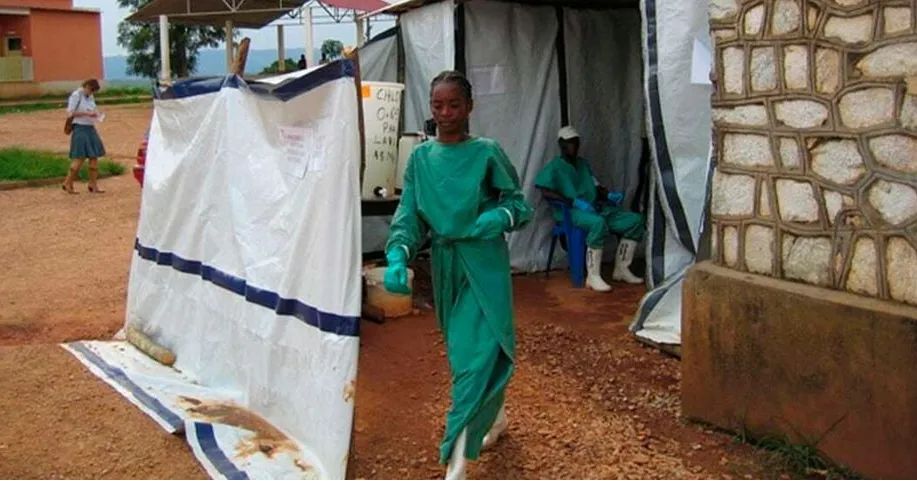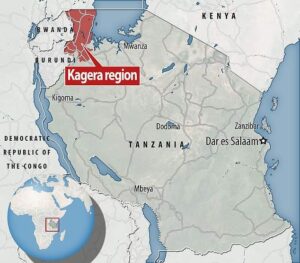Marburg Virus Outbreak Brings Fear ~ Health Officials

Some health experts and development partners in the health sector have started expressing fear following media reports of government of Tanzanias confirmation of its first-ever cases of Marburg Virus Disease after laboratory tests were carried out following reports of cases and deaths in the country’s north-west Kagera region.
The concerns come against the background of Tanzania’s National Public Health Laboratory analyzing samples to determine the cause of illness after eight people developed symptoms including fever, vomiting, bleeding and renal failure.
Five of the eight cases, including a health worker, have died and the remaining three are receiving treatment. A total of 161 contacts have been identified and being monitored.
Monitoring, Evaluation, Accountability and Learning (MEAL) Officer at the Catholic Health Commission Gift Banda called for early response to outbreaks in averting the spread and severity of diseases.

He said the Ministry of Health as a functioning Health System is characterized by well designed information flow, up to now, is silent on this dangerous and deadly disease adding disaster preparedness, risk reduction and management should be prioritized, at this moment, the Ministry should intensify Risk Communication and Community Engagement.
“For the sake of those who don’t know Marburg Disease is in the same family with Ebola, it’s clinical presentation is almost the same. It has a Fatality rate of over 88 Percent, meaning to say, if 100 people get the disease, 88 are at risk of dying, do you see how dangerous it is?” wondered Banda
Banda further expressed concerns looking at the proximities where cases have been reported stating that Malawi is too close, in regards to fundamentals of international health, we are a population at risk while this is happening at a time the country is still struggling with Covid 19, Cholera and the most recent Tropical Cyclone Freddy,
Meanwhile, The World Health Organization (WHO) Regional Director for Africa, Dr Motshidisho Moeti says, “efforts by Tanzania’s health authorities to establish the cause of the disease is a clear indication of the determination to effectively respond to the outbreak. We are working with the government to rapidly scale up control measures to halt the spread of the virus and end the outbreak as soon as possible.
“WHO is supporting the Tanzanian Health ministry to deploy an emergency team to Kagera to carry out further epidemiological investigations. The emergency team will focus on active case finding in the community and local health care facilities to identify more contacts and provide them with appropriate care.”

While Tanzania has never previously recorded a Marburg case, it has had to respond to other health emergencies including COVID-19, cholera and dengue within the past three years.
A strategic risk assessment conducted by WHO in September 2022 showed that the country is at high to very high risk for infectious diseases outbreaks.
“The lessons learnt, and progress made during other recent outbreaks should stand the country in good stead as it confronts this latest challenge,” said Dr Moeti. “We will continue to work closely with the national health authorities to save lives.”
Marburg virus disease is highly virulent and causes haemorrhagic fever, with a fatality ratio of up to 88%. It is in the same family as the virus that causes Ebola virus disease. Illness caused by Marburg virus begins abruptly, with high fever, severe headache and severe malaise. Many patients develop severe haemorrhagic symptoms within seven days. The virus is transmitted to people from fruit bats and spreads among humans through direct contact with the bodily fluids of infected people, surfaces and materials.
There are no vaccines or antiviral treatments approved to treat the virus. However, supportive care – rehydration with oral or intravenous fluids – and treatment of specific symptoms, improves survival.

Meanwhile, Malawi’s health ministry officials are yet to report on the Tanzanian Margurg Virus while other neighbouring countries to one of the east Africa’s largest economy have reported to be on high alert.






